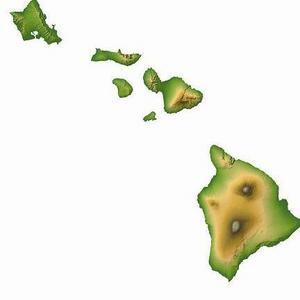Hawaiian Electric Companies seek ULSD, biodiesel proposals

September 3, 2013
BY The Hawaiian Electric Companies
The Hawaiian Electric Companies began a search for suppliers of cleaner fuels, including ultra-low sulfur diesel (ULSD), biodiesel or biodiesel blends. The companies are seeking up to 150,000 barrels per year (6.3 MMgy) to supply Maui Electric and Hawaii Electric Light Co. generation facilities beginning Jan. 1, 2015, for a contract term of up to three years.
This request for proposals offers biodiesel suppliers—including local biodiesel producers—the opportunity to offer biodiesel or biodiesel blends for all or part of the required volumes on Maui, Molokai, Lanai or Hawaii Island. Proposals will be considered if the biodiesel price is competitive with the price of ULSD.
Advertisement
Advertisement
Hawaiian Electric continues to use 100 percent renewable biodiesel on Oahu in the Campbell Industrial Park Generating Station. It will also do so in the planned Honolulu International Airport Emergency Generation Facility. In addition, all diesel vehicles in the Hawaiian Electric fleets use B20, a blend of 20 percent biodiesel with 80 percent petroleum diesel.
Using renewable biofuels is one of many paths the Hawaiian Electric Companies are following to reduce Hawaii’s dependency on fossil fuel. The companies also continue to seek more energy from renewable sources, such as solar, wind, geothermal, biomass, hydro, and, in the future, from the ocean. Firm generation using biofuels in place of fossil fuels can supply the essential firm backup needed to take maximum advantage of variable renewables, such as wind and solar.
As with all fuel and power purchase contracts, the final negotiated contract or contracts will be submitted for review by the Hawaii State Public Utilities Commission with input from the Hawaii Office of Consumer Advocacy.
Advertisement
Advertisement
Prospective bidders will find more information here. Any biofuel provided to the Hawaiian Companies must conform to environmental guidelines for the sustainable use of biofuels developed by Hawaiian Electric in partnership with the Natural Resources Defense Council, also available on the site. The proposal deadline is Oct. 15, 2013.
Related Stories
Broco Energy on July 17 announced a new partnership with the Massachusetts Port Authority (Massport) to deliver and transition Massport's fuel tanks to renewable diesel across its various facilities.
Shell Aviation, Accenture, and Amex GBT on July 10 announced Avelia is in the process of evolving to an industry solution with independent data hosting and a multi-supplier model helping users access the GHG benefits of SAF.
The U.S EPA on July 17 released data showing more than 1.9 billion RINs were generated under the RFS during June, down 11% when compared to the same month of last year. Total RIN generation for the first half of 2025 reached 11.17 billion.
The U.S. EPA on July 17 published updated small refinery exemption (SRE) data, reporting that six new SRE petitions have been filed under the RFS during the past month. A total of 195 SRE petitions are now pending.
European biodiesel producer Greenergy on July 10 confirmed plans to shut down its biodiesel plant in Immingham, Lincolnshire, U.K. The company temporarily suspended operations at the facility earlier this year.
Upcoming Events










